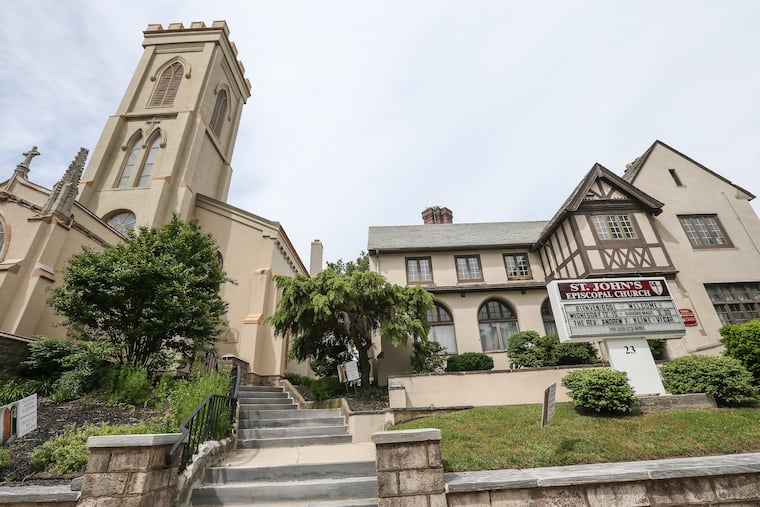After more than 200 years in Philly, Episcopal Diocese of Pennsylvania headquarters moves to Norristown
The Episcopal Diocese of Pennsylvania will move its headquarters from a building adjacent to the local denomination’s cathedral in University City to St. John's Episcopal Church in Norristown, and maintain a satellite office in Center City at St. Stephen's Episcopal Church.

Ever since 1784, the Episcopal Diocese of Pennsylvania has been headquartered in Philadelphia, most recently leading its 134 churches from offices adjacent to the denomination’s cathedral in University City.
This fall, however, the diocese, which represents 40,000 parishioners in the five-county Philadelphia area, will move its administrative base to the suburbs — to a Norristown church that was closed nearly four years ago.
The new headquarters will be St. John’s Episcopal Church, a Gothic-style cathedral steps away from the Montgomery County courthouse. The diocese also will set up a satellite office in Philadelphia at St. Stephen’s Episcopal Church, another congregation that had earlier closed its doors but is now reopened as a community resource center.
The Philadelphia Episcopal Cathedral in University City will remain the worship center of the diocese.
Officials of the diocese and Cathedral Close Inc., the entity that operates the cathedral and the adjacent building, were unable to reach an agreement that would extend their five-year lease. Before settling in University City, Episcopal offices had been in Society Hill and Germantown.
“We were not able to take on even the slightest [rent] increase,” diocesan officials said in a statement. “This move will help the diocese save a significant amount of money, provide more life and stability for St. John’s and extend our ability to focus on ministry.” The new location also has ample space for meetings, is easily accessible, and has free parking.
Bishop Daniel Gutierrez maintained that the move was not just financially prudent, but one that he expects to inject new life into two churches that were shuttered in the wake of dwindling membership and resources.
St. John’s closed in 2015 and St. Stephen’s in 2016, before the bishop joined the diocese.
For St. Stephens, located at 10th and Ludlow Streets, Gutierrez has defined a community-oriented mission — with no Sunday services — in a busy Center City neighborhood; he envisions it also partnering with nearby hospitals and becoming a training center for deacons. At. St. John’s, the bishop touts the benefits of being headquartered at a church that is centrally located in the region, with a growing and diverse population that he says “could be a launching pad" for a “nimble” church equipped to serve into the future.
“I decided to open [them] because I have belief in the transformative power of Jesus Christ," Gutierrez said. "I have this profound belief that people in this day and age are bombarded by messages of negativity and loneliness and [are experiencing] a lack of community. We have a message that offers hope. "